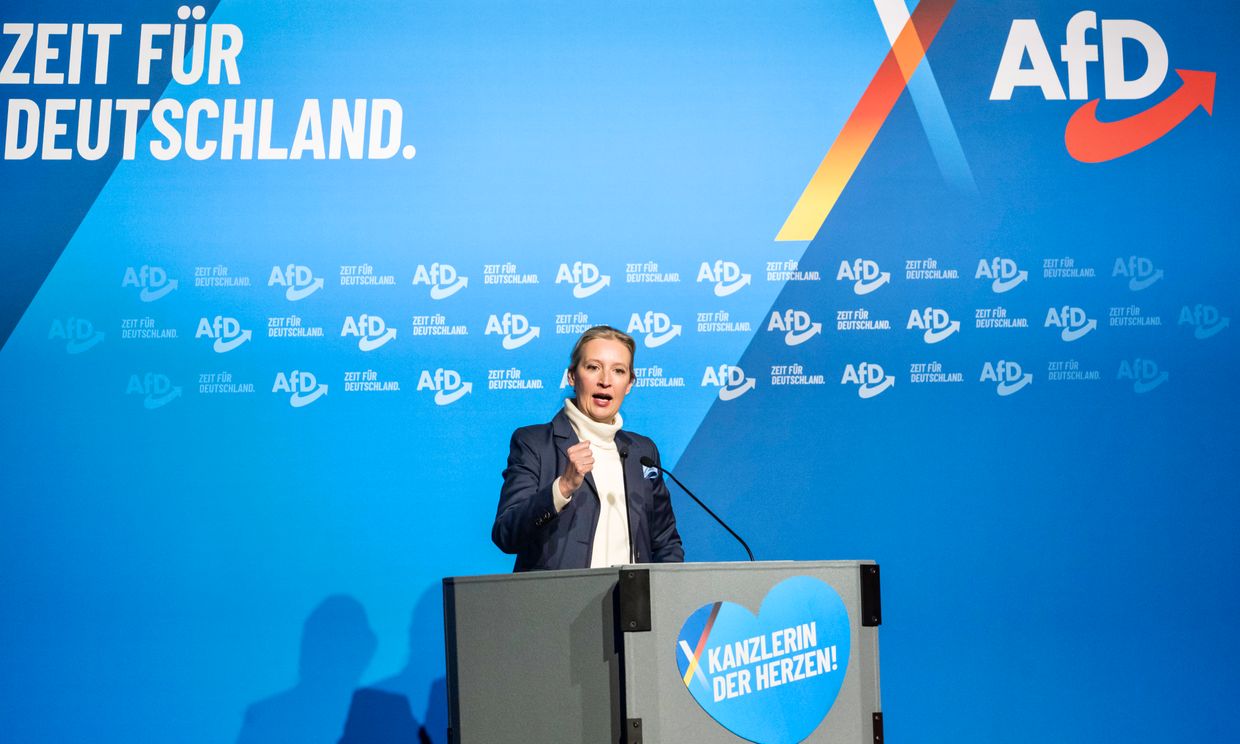Speaking to CNN on May 10, Peskov commented on the latest ceasefire proposal from Ukraine and Europe, responding that Russia needs to "think about" it, but is "resistant" to pressure.
Speaking at a press conference in Kyiv on May 10, President Volodymyr Zelensky rebuked the idea of a demilitarized zone in the war and emphasized the importance of first securing a ceasefire.
"We agreed that a full and unconditional ceasefire must begin on Monday, May 12, for at least 30 days. We jointly demand this from Russia, and we know we are supported in this by the United States," Zelensky said.
The announcement follows mounting fears that the two nuclear-armed countries were on the brink of engaging in another full-scale war.
Ukrainian media outlet ZN.UA reported on May 10 that their law enforcement sources confirmed an ongoing probe by the National Anti-Corruption Bureau into suspected embezzlement, money laundering and bribery.
Iran is preparing to send Russia Fath-360 short-range ballistic missile launchers, Reuters reported on May 9, citing Western security and regional officials familiar with the matter.
"Ukraine and all allies are ready for a complete unconditional ceasefire on land, in the air, and at sea for at least 30 days, starting as early as Monday," Ukraine's Foreign Minister Andrii Sybiha wrote.
U.S. President Donald Trump has acknowledged in private that Russia is difficult to negotiate with because they "want the whole thing," referring to Ukraine, the WSJ reported, citing sources familiar with the comments.
The visit marks Merz’s first trip to Ukraine, and the first time all four leaders have travelled there together.
A notice about the airspace closure was published on the U.S. Defense Department's NOTAM (Notice to Airmen) website on May 10, as cited by Ukrainian defense news outlet Militarnyi.
"As in the past, it is now for Russia to show its willingness to achieve peace," the EU's statement reads.
Kremlin spokesperson Dmitry Peskov rejected the idea of a 30-day ceasefire between Russia and Ukraine, claiming in an interview with ABC News on May 10 that it would be "an advantage" for Ukraine.
Germany classifies AfD as confirmed right-wing extremist organization

Germany's domestic intelligence agency has officially classified the Alternative for Germany (AfD) party as a "confirmed right-wing extremist organization," Der Spiegel reported on May 2.
Until now, only AfD's regional branches in Thuringia, Saxony, and Saxony-Anhalt held that status, while the national party had been under observation as a suspected extremist group.
The Federal Office for the Protection of the Constitution finalized the designation after compiling a report exceeding 1,100 pages, which outlined extensive evidence of extremist activity within the party.
The new classification does not ban the party but grants security services greater powers to monitor it through intelligence methods. These include wiretapping communications, recruiting informants, and tracking finances more aggressively.
AfD has long campaigned on opposition to immigration and criticism of European integration, while consistently advocating rapprochement with Russia.
The party opposes military aid to Ukraine, calls for lifting sanctions against Moscow, and has repeatedly urged the resumption of trade relations.
Concerns over the AfD's ties to authoritarian regimes deepened after multiple senior members came under investigation for suspected collusion with Moscow and Beijing.
Co-leaders Tino Chrupalla and Alice Weidel both traveled to Russia in recent years, and in May 2023, Chrupalla and party founder Alexander Gauland attended a reception at the Russian Embassy in Berlin celebrating Russia's Victory Day.
The AfD's stance aligns with that of Germany's left-wing populist BSW party in calling for peace talks over military support to Ukraine. Lawmakers from both parties walked out of the Bundestag during President Volodymyr Zelensky's speech in June 2024.
After U.S. President Donald Trump's return to the White House, the AfD secured a key ally in Washington.
Billionaire Elon Musk, one of Trump's top supporters, publicly endorsed the party, calling it Germany's "last spark of hope" despite longstanding accusations of Nazi sympathies among its ranks.
In the most recent German federal elections, the AfD captured 20.8% of the vote, consolidating support in parts of the former East Germany where the party has long had a foothold.

Most Popular

After 3 years of full-scale war in Ukraine, Europe announces plan to ban all Russian gas imports

Ukraine, Europe's ceasefire proposal includes US security guarantees, no recognition of Crimea, Reuters reports

Journalist Roshchyna's body missing organs after Russian captivity, investigation says

After Russia's deadly attack on Kyiv, Vance reposts denunciation of Zelensky

Ukrainian sea drone downs Russian fighter jet in 'world-first' strike, intelligence says
Editors' Picks

How medics of Ukraine’s 3rd Assault Brigade deal with horrors of drone warfare

As Russia trains abducted children for war, Ukraine fights uphill battle to bring them home

'I just hate the Russians' — Kyiv district recovers from drone strike as ceasefire remains elusive




